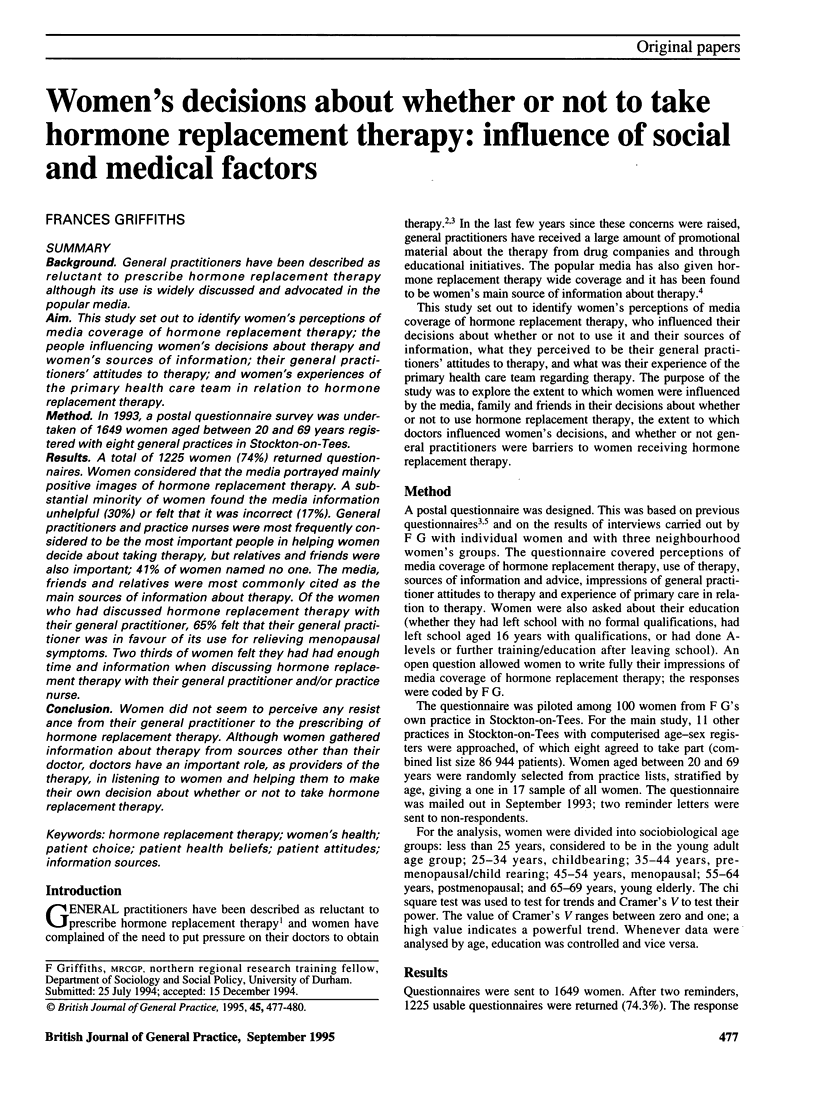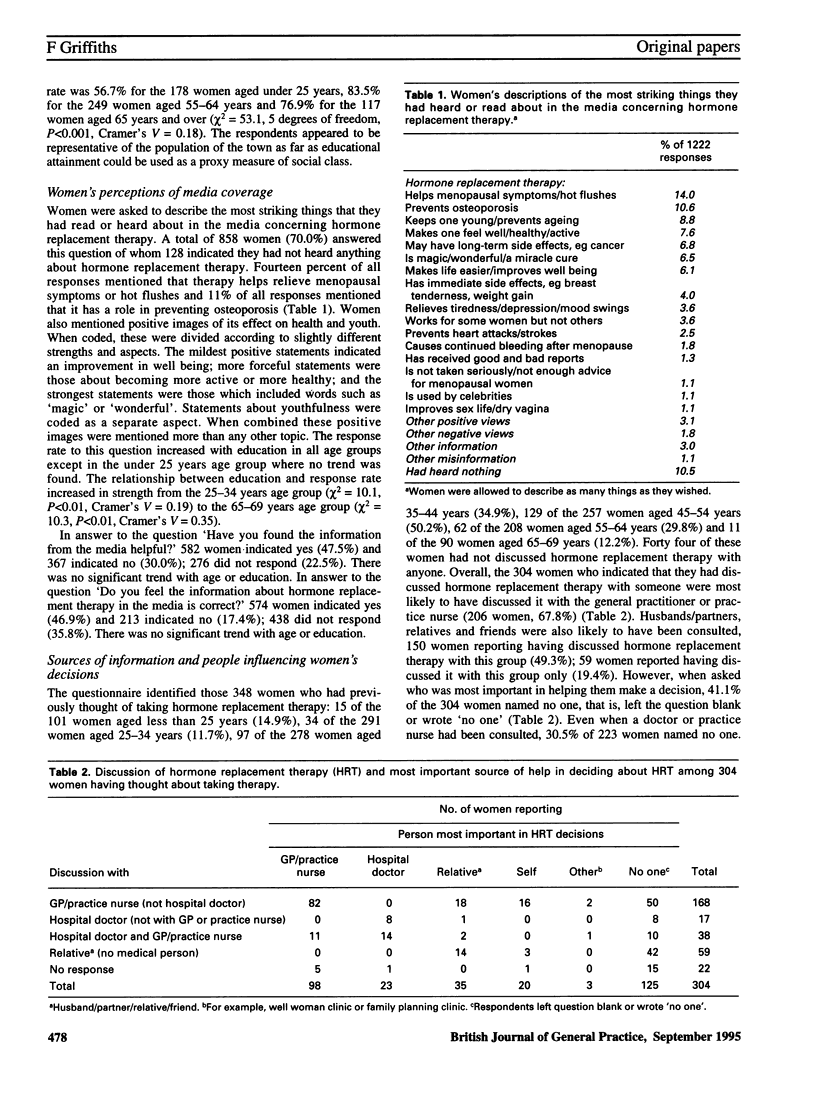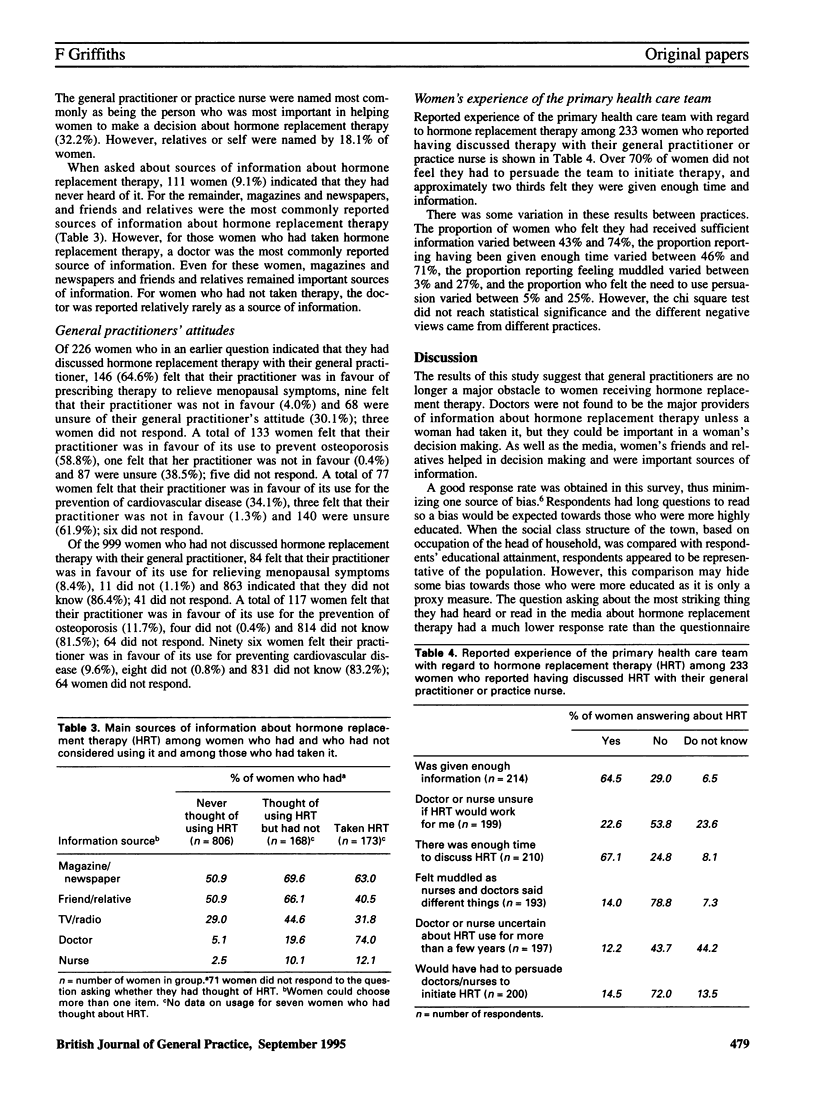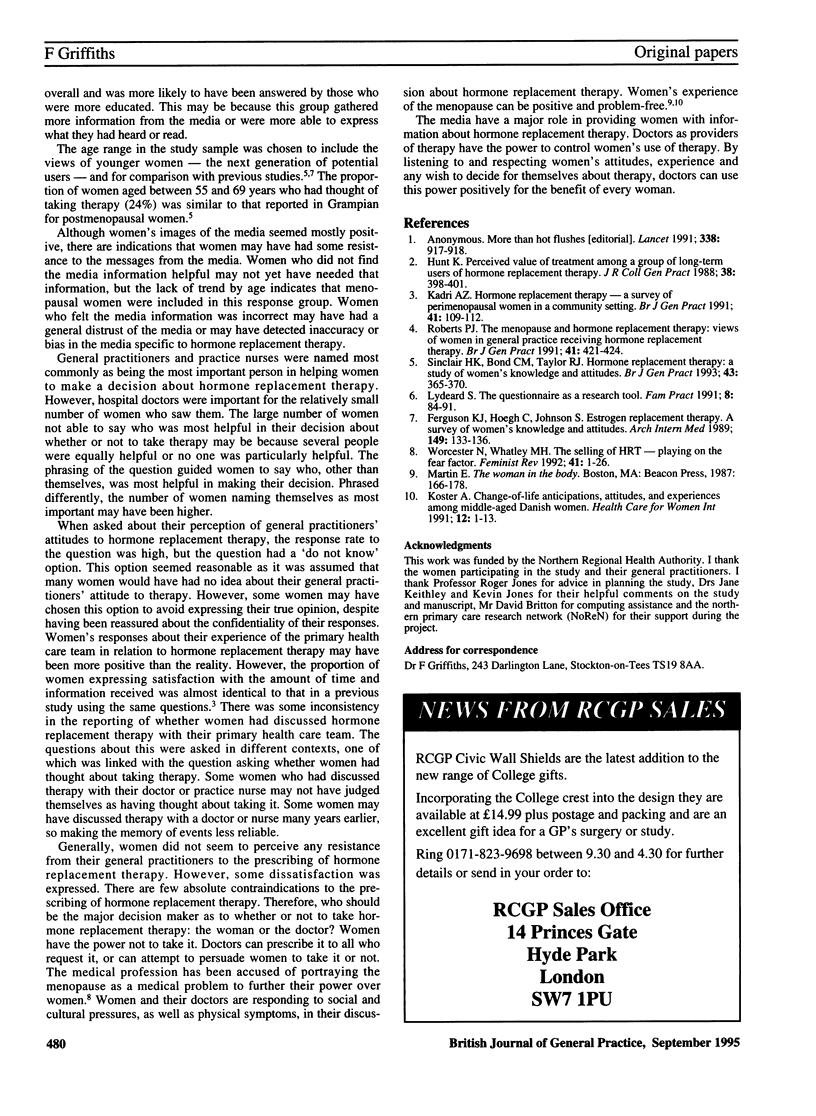Abstract
BACKGROUND. General practitioners have been described as reluctant to prescribe hormone replacement therapy although its use is widely discussed and advocated in the popular media. AIM. This study set out to identify women's perceptions of media coverage of hormone replacement therapy; the people influencing women's decisions about therapy and women's sources of information; their general practitioners' attitudes to therapy; and women's experiences of the primary health care team in relation to hormone replacement therapy. METHOD. In 1993, a postal questionnaire survey was undertaken of 1649 women aged between 20 and 69 years registered with eight general practices in Stockton-on-Tees. RESULTS. A total of 1225 women (74%) returned questionnaires. Women considered that the media portrayed mainly positive images of hormone replacement therapy. A substantial minority of women found the media information unhelpful (30%) or felt that it was incorrect (17%). General practitioners and practice nurses were most frequently considered to be the most important people in helping women decide about taking therapy, but relatives and friends were also important; 41% of women named no one. The media, friends and relatives were most commonly cited as the main sources of information about therapy. Of the women who had discussed hormone replacement therapy with their general practitioner, 65% felt that their general practitioner was in favour of its use for relieving menopausal symptoms. Two thirds of women felt they had had enough time and information when discussing hormone replacement therapy with their general practitioner and/or practice nurse. CONCLUSION. Women did not seem to perceive any resistance from their general practitioner to the prescribing of hormone replacement therapy. Although women gathered information about therapy from sources other than their doctor, doctors have an important role, as providers of the therapy, in listening to women and helping them to make their own decision about whether or not to take hormone replacement therapy.
Full text
PDF



Selected References
These references are in PubMed. This may not be the complete list of references from this article.
- Ferguson K. J., Hoegh C., Johnson S. Estrogen replacement therapy. A survey of women's knowledge and attitudes. Arch Intern Med. 1989 Jan;149(1):133–136. doi: 10.1001/archinte.149.1.133. [DOI] [PubMed] [Google Scholar]
- Hunt K. Perceived value of treatment among a group of long-term users of hormone replacement therapy. J R Coll Gen Pract. 1988 Sep;38(314):398–401. [PMC free article] [PubMed] [Google Scholar]
- Kadri A. Z. Hormone replacement therapy--a survey of perimenopausal women in a community setting. Br J Gen Pract. 1991 Mar;41(344):109–112. [PMC free article] [PubMed] [Google Scholar]
- Køster A. Change-of-life anticipations, attitudes, and experiences among middle-aged Danish women. Health Care Women Int. 1991 Jan-Mar;12(1):1–13. doi: 10.1080/07399339109515922. [DOI] [PubMed] [Google Scholar]
- Lydeard S. The questionnaire as a research tool. Fam Pract. 1991 Mar;8(1):84–91. doi: 10.1093/fampra/8.1.84. [DOI] [PubMed] [Google Scholar]
- Roberts P. J. The menopause and hormone replacement therapy: views of women in general practice receiving hormone replacement therapy. Br J Gen Pract. 1991 Oct;41(351):421–424. [PMC free article] [PubMed] [Google Scholar]
- Sinclair H. K., Bond C. M., Taylor R. J. Hormone replacement therapy: a study of women's knowledge and attitudes. Br J Gen Pract. 1993 Sep;43(374):365–370. [PMC free article] [PubMed] [Google Scholar]


